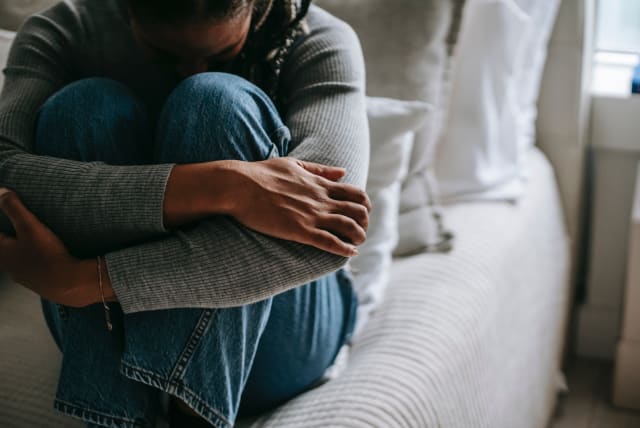Domestic violence in Israel: One-in-10 suffers from intimate partner violence - study

The study was conducted through surveys and focus groups, and Israel's Central Bureau of Statistics assisted in carrying out the study.
One in ten Israelis suffers from intimate partner violence (IPV), a form of domestic violence, according to a recently published study.
The study, the result of cooperation between the interministerial committee combating domestic violence, the Welfare and Social Affairs Ministry, and the Red Lines initiative to prevent IPV, examined the scope of IPV to learn, identify trends, and create preventative measures and treatment.
5.3% of women (around 142,000) suffered physical violence at the hands of their partner in the last 12 months, the study found.
Around 3.6% of women (approximately 96,000) suffered severe IPV, 8% suffered from sexual violence at the hands of their partner, 9% were harmed by nonphysical violence from their partner, and 4% were harmed by economic abuse, the report added.
3.8% (around 100,000) of men suffered from IPV at the hands of their partner in the last 12 months. Around 50,000 men (1.9%) suffered from severe IPV, 9.8% suffered from non-physical violence, 6% suffered sexual violence at the hands of their partner, and 3% suffered economic violence.
The majority of victims of IPV do not complain to officials such as welfare, police, medical, or other aid providers, the report found. Some 41% of female victims of IPV and just 20% of male victims of IPV reported offenses against them and sought help.
Of the women who sought help, 50% preferred to go to private organizations such as psychologists and rabbis, 15% went to non-profit organizations, and 31% went to institutions such as welfare or police.
36% of men who received help went to private organizations, 9% went to non-profits, and 17% went to officials from institutions.
What the study highlights
“The study shows that IPV is a widespread phenomenon that we see in one out of ten couples in Israel,” said Yasmin Rubin Cooper, the head of the Red Lines initiative.
“There is no doubt that the way to reduce the occurrences is by widespread and methodical prevention [efforts],” she said, adding that this was the essence of the initiative.
The study was conducted through surveys and focus groups, and Israel’s Central Bureau of Statistics accompanied the study professionally.
Red Lines is a partnership of over 100 public organizations, both social and business organizations, working to create collective impact.
Jerusalem Post Store
`; document.getElementById("linkPremium").innerHTML = cont; var divWithLink = document.getElementById("premium-link"); if (divWithLink !== null && divWithLink !== 'undefined') { divWithLink.style.border = "solid 1px #cb0f3e"; divWithLink.style.textAlign = "center"; divWithLink.style.marginBottom = "15px"; divWithLink.style.marginTop = "15px"; divWithLink.style.width = "100%"; divWithLink.style.backgroundColor = "#122952"; divWithLink.style.color = "#ffffff"; divWithLink.style.lineHeight = "1.5"; } } (function (v, i) { });

